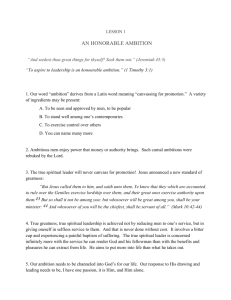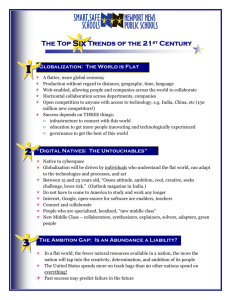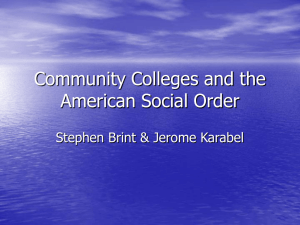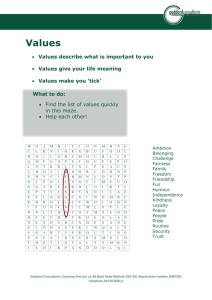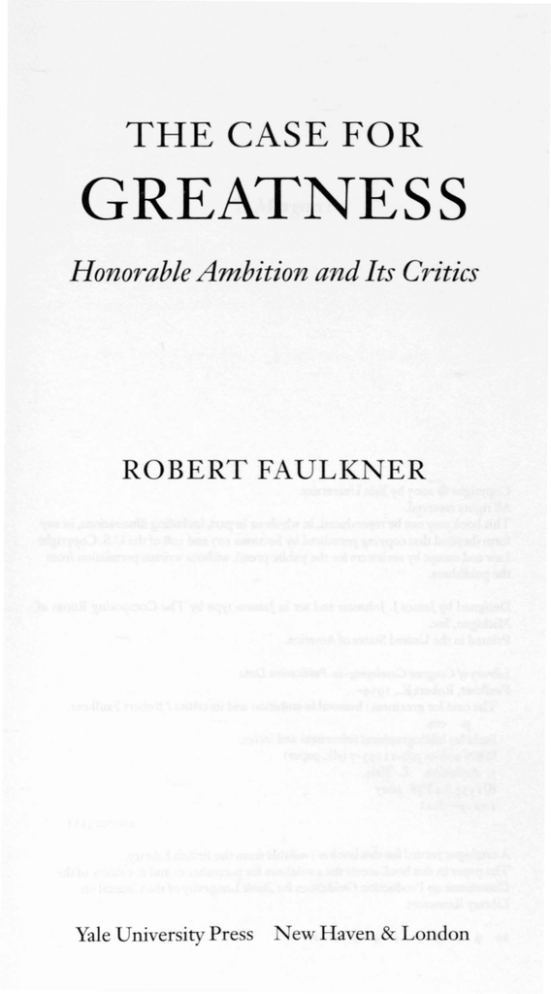
THE CASE FOR
GREATNESS
Honorable Ambition and Its Critics
ROBERT FAULK ER
Yale University Press
ew Haven & London
Copyright © 2007 by Yale University.
All rights reserved.
This book may not be reproduced, in whole or in part, including illustrations, in any
form (beyond that copying permitted by Sections 107 and 108 of the .5. Copyright
Law and except by reviewers for the public press), without written permis ion from
the publishers.
Designed by James J. Johnson and set in Janson type by The Composing Room of
Michigan, Inc.
Printed in the United States of America.
Libr01)' ofCongress Cataloging-in-Pllblicatioll Data
Faulkner, Robert K., 1934The case for greatness: honorable ambition and its critics / Robert Faulkner.
p. cm.
Includes bibliographical references and index.
ISB 978-0-300-12393-7 (alk. paper)
I. Ambition.
1. Title.
BJI533-A4·F38 2007
179'.9-dc2 2
2°°7°23 112
A catalogue record for this book is avajlable from the British Library.
The paper in this book meets the guidelines for permanence and durability of the
Committee on Production Gujdelines for Book Longevity of the Council on
Library Resources.
10
9
8
7 6
5 4
Mankind has never been in this position before. Without having
improved appreciably in virtue or enjoying wiser guidance, it has
got into its own hands the tools by which it can unfailingly accomplish its own extermination.... It is therefore above all things important that the moral philosophy and spiritual conceptions of men
and nations should hold their own amid these formidable scientific
evolutions.
-WI
STO
CHURCHILL,
Thoughts and Adventures (1932)
Contents
Acknowledgments
xi
Introduction: Honorable tatesmen and Obscuring
Theories I
CHAPTER I.
The Gentleman-Statesman: Aristotle's (Complicated)
Great-Souled Man 16
CHAPTER 2.
3. Imperial Ambition in Free Politics: The Problem of
Thucydides' AJcibiades 58
CHAPTER
4. The Soul of Grand Ambition: AJcibiades
Cross-Examined by Socrates 81
CHAPTER
5. Imperial Grandeur and Imperial Hollowness:
Xenophon's Cyrus the Great 127
CHAPTER
6. Obscuring the Truly Great: Washington and Modern
Theories of Fame 177
CHAPTER
CHAPTER
Web
CHAPTER
7. Honorable Greatness Denied
198
(I):
The Egalitarian
8. Honorable Greatness Denied (2): The Premises
otes
243
Index
257
219
Acknowledgments
I'm grateful to Christopher Breull, Susan Meld Shell, and Margaret McConagha Faulkner, who read earlier ver ions of this book.
It benefited from their comprehensive advice. Other friends, colleagues, and students helped with this or that part; I'll acknowledge them along the way. Here I wish to add thanks to the anonymous readers for Yale University Press, to my editor at the Press,
Keith Condon, who contributed in ways big and small, and to
Thomas Schneider for an exacting final review.
Boston College granted fellow hips and periods of leave essential to my studies and writing. For these, for its support over
many years, and for harboring serious scholars from whom I have
learned much, I am very grateful. I warmly thank the Earhart
Foundation, whose fellowships enabled me to begin and then to
complete the writing, and thank also Rowman and Littlefield
Publishing Group, Inc., for permission to draw from previous
work. A version of chapter 6 appeared as "John Marshall and the
False Glare ofFame," in Peter Mc amara, ed., The Noblest Minds:
Fame, Honor, and the American Founding (Lanham, Md.: Rowman
and Littlefield, 1999), 163-84. Part ofchapter 5 appeared as "Justice Overruled: The Ambition ofXenophon' Cyru the Great,"
in Svetozar Minkov, ed., Enlightening Revolutions: Essays in Honor
of Ralph Le17ler (Lanham, Md.: Lexington Books, 2006), 28930 8.
Xl
CHAPTER 0
E
Introduction:
Honorable Statesmen and
Obscuring Theories
His ambition was a little engine that lmew no rest.
-
HERNDON,
Life ofLincoln (1888)
Every man is said to have his peculiar ambition. Whether it be true
or not, I can say for one that I have no otller so great as that of being
truly esteemed by my fellow men, by rendering myself worthy of
their esteem. How far I shall ucceed in gratifying this ambition is
yet to be developed.
-ABRAHAM LINCOL
T
,1
32
and especially its good vel' ion, honorable or tatesmanlike
ambition. Statesmanlike ambition is well known, of
course, wlless one could maintain that elson Mandela or Winston Churchill does not differ from the tyrant Joseph Stalin or
the dangerous mediocrity eville Chamberlain. Mandela and
Churchill appeared larger and better than life to many of their
free contemporaries. They attract as a matter of course attentive
political historians who size up their efforts at defending, reforming, and founding a free country. But what seems obvious to the
public-spirited is not so obvious to many scholars, thinkers, and
intellectuals. There is a big divide between the easy acknowledgment of greatness that arises among thoughtful citizens and appreciative historians (I'm not talking of foolish hero worship) and
the doubting cynicism of many contemporaries who generalize
about human affair. Among the theorists, too often, skepticism
as well as cynicism prevails. Why is it that social scientists speak
much of rational maximizing, power seeking, self-interest, and
popular voice, but not much of extraordinary judiciousness, honHIS IS A BOOK ABOUT GREAT POLITICAL AMBITIOl
2
INTRODUCTIO
orable aims, and knowing justice? Or that influential professors
of philosophy and literature talk confidently of autonomy and
equal dignity, while deprecating ambition for office and accomplishment as elitist domineering or a remnant of repressive culture? The contrast between our experience and our theories set
my inquiry in motion.
I begin with the obvious thing, the ambitions all around us.
You see the candidate running for office, the representative vying
for the television lights, and the mayor trying to improve the
schools. But how to understand the underlying motives and the
different kinds ofmotive? The ambitious candidate wants to rise,
we tend to say; he or she wants to get ahead, to succeed. But that
de cription, familiar in our mobile democracies, is even there
loose and inadequate. It doesn't catch what distinguishes the ambitious candidate from the careerist or moneymaker, who also
wants to get ahead. It doesn't even catch what distinguishes the
politically ambitious candidate from the time-server or the candidate on the take. Ifhe or she is in it for lifetime security or graft,
he or she is not politically ambitious, except in an imprecise
sense. Who, then, is ambitious in the precise sense? It is the candidate who wants not so much the security or the money as to be
in charge, to have his name in the papers, to make a difference.
These three objects, superiority in power, reputation, and notable accomplishment, are crucial to the disposition we call political ambition. If present on a grand scale, they distinguish grand
ambition as well. Napoleon sought kingly command, imperial
fame, and enlightened empire over all Europe and farther. (He
also got riches on an imperial scale, although not job security.)
And if the aims are honorable and just as well as grand, they mark
a truly grand ambition, ambition good as well as great. George
Washington, the American icon, sought command in just and
necessary battles, honorable fame, and the establishment of his
country as an exemplar of popular self-government.
In our everyday experience we distinguish all the time between good and bad ambition. It is too obvious that Mandela,
who liberated his fellow citizens while working for a free and
multiracial country, differs from the twisted despot Idi Amin,
who slaughtered hundreds of thousands of his countrymen. Jus-
INTRODUCTIO
3
tice, judgment, the common good, honorable conduct-these
make a big difference. Which is not to deny cases, such as that of
Julius Caesar in a decayed republic, in which the merits are complicated and disputed. Here it is enough to remind of the American congressman's simple distinction between the show horse
and the workhorse. The show horse shines at press conferences
and in the media; the workhorse does his duties, even as he appreciates a good reputation among his knowing peers. Doing
one's duty, and if one seeks grand office and famous command,
then doing one's grand tasks there, too-that is the obvious key. I
illustrate the point with some reflections on two famous descriptions, quoted at the start, as to Abraham Lincoln's ambition.
Lincoln's law partner and friend, William Herndon, characterized Lincoln's ambition as a powerful drive, like an unceasing
mechanical force: "His ambition was a little engine that knew no
rest." The phrase reminds of a popular and rather cynical opinion: politicians are always out for themselves, and the stronger
ones more strongly. Lincoln's own description, at twenty-three,
when he first sought office as a representative in the Illinois Assembly, is more complex and revealing: "Every man is said to
have his peculiar ambition. Whether it be true or not, I can say
for one that I have no other so great as that of being truly esteemed by my fellow men, by rendering myself worthy of their
esteem. How far I shall succeed in gratifying this ambition is yet
to be developed." Let us uppose that thi published view is Lincoln's true view. (Whom would one believe more?) What does it
show about his ambition?
Lincoln disavows talk about some universal force or ambition
in men generally, while talking of a certain kind of ambition, his
own, that he might certainly know. He seeks office, that is, to be
(to an extent) in charge. But he also seeks the good opinion of his
countrymen, and he wishes to be worthy of their good opinion.
The wish to be deserving, not only to win a name but also to do
things worthy of such a reward, is important. Otherwise put: Lincoln seeks the true "esteem" of his fellowmen. To seek esteem is
not to seek notoriety, as by crimes or spectacles, since those who
esteem someone have a good opinion of him. Lincoln seeks the
good opinion of his fellow citizens, not their shock and awe. He
4
INTRODUCTION
seeks their reasoning, discriminating approval. He does not have
in mind the now-fashionable notions of charisma or prestige,
which involve dazzling or blinding people rather than obtaining
the appraisal one deserves. (According to the Oxford English Dictionary, prestige originally meant an illusory impression.) or
does Lincoln mean here mere image making, although that certainly has its place in politics, not least in mass democracy. Consider Honest Abe the railsplitter, of his first presidential campaign. While Lincoln was extraordinarily shrewd as to the ways
of political success, he sought something more reasonable than
mere victory and more to do with his merit or deserts. He wants
to be "truly esteemed," not merely esteemed. I take this to imply
a wish for approval not by mere public opinion, but rather by the
opinion of a discriminating public. Lincoln would not characteristically describe himself as seeking glory, which glows blindingly. Esteem warms one with intelligent honor, bestowed knowingly and deservedly. This is what Lincoln seeks for himself.
Admittedly, this preliminary description of truly great ambition is drawn from small evidence, although the full facts do place
Lincoln among the most commanding, knowing, and morally serious of liberal democratic statesmen. Admittedly, too, the ambition so described is more just and wise than that of the vast majority of the ambitious, in any time or place. But this is the point.
I am suggesting that Lincoln's kind of ambition sheds indispensable light also upon the lesser kinds, including the ambition of
decent but more ordinary leader, and not excluding that of the
tyrant and the time-server. That is the reason to clarify ambition
at its best; it illuminates what we most often find lacking. It sheds
defining light. Alternatively, it helps explain the admiration of
discriminating citizens for grand statesmen, those who make, defend, or preserve a decent country. Theirs can be a deserved
fame, imprinted in the hearts of their countrymen as well as on
streets, cities, states, and public buildings.
But can such a rather simple and old-fashioned analysis still
be true, given the pluralism, moral skepticism, irrationalism, historicism, and egalitarianism of this sophisticated age? Many
decades ago Churchill urged the special need in modern times to
hold fast to "the moral philosophy and spiritual conceptions of
[
TRaDUCTION
5
men and nations." He was confronting new ideological tyrannies
and new scientific and industrial powers of destruction. Great
victories have now been won over the twentieth century's fascist
and Marxist tyrannies, partly owing to his inspiration and leadership. But has his plea for preserving moral and spiritual standards
been successful? I fear not, at least if one judges by the intellectual fashions of the enlightened West. Seven or eight decades
later one sees a pervasive relativism as to values and, what is more,
a positive project to liberate from traditional values, especially
moral restraint and high character. Modern skepticism and postmodern liberation make up a strange tag team of beliefs, beliefs
in one way or another ratified and broadcast by the universities,
by most novelists and playwrights, and by much of the media.
These intellectual fashions now penetrate a mass public, and in
such broadening circles, at least, things moral and spiritual seem
less sustained than systematically undermined. This, even as the
movements of doubt and liberation provoke a moral and religious backlash, especially among Muslims but also among a Christian right and other circles in the democratic West.
What follows might be called an attempt to refresh a reasonable understanding of human excellence. To speak more within
compass, I attempt to revive a once-celebrated understanding of
honorable ambition, in particular, by returning to the seminal accounts of the classical political philosophers. This will seem to
many a strange step. I shall contend that it is a necessary step.
While along the way I address contemporary critics who say it
can't be done or shouldn't be done, the core of this book does it.
In the three most important chapters I investigate the accounts of
political greamess by Aristotle, Plato, and Xenophon. Whatever
the differences, all three diagnoses are variations on the Socratic
beginnings of moral and political cience as we know it. All three,
I mean to show, have the freshness of beginnings. Here is the key
contention. These old accounts illuminate our experiences of a
Mandela or a Margaret Thatcher far better than the critical and
doctrinal theorizing that is more familiar and has been in the
works for three or four centuries. This is what I seek to prove.
evertheless, mine is an inquiry, not a screed or a creed, and
I also address the critics. The last two chapters review the leading
6
INTRODUCTION
objections, that so-called grandeur of soul is really mere vanity
and desire for domination, and that the old philosophic defenses
only gild an inhumane, impracticable inequality. These discussions are in small compass, and they offer less rebuttal than genealogy, an account of the philosophic developments underlying our
intellectual predicament. But there is some rebuttal, if only to exhibit the doubtful premises in the family tree. I also confront relevant theoretical objections and plainer political doubts throughout, especially in the remainder of this introduction and in the
following chapter, which examines Aristotle's proposal, now often disdained, of the gentleman-statesman.
In general, the book begins by considering an honorable and
just form of grand ambition, the statesman who works within the
laws of his free country. The focus then moves to the political
dangers and psychological dynamics of the less bounded and less
just forms, the ambitions of those who seek empire and rule for
themselves. I conclude by weighing certain modern theories that
obscure these moral-political phenomena and make them peculiarly alien to our apprehension and sensibilities.
Aristotle's model ofgrand ambition is a distinctively moral interpretation, at least in the Nicomachean Ethics. It treats of a special virtue, magnanimity (or greatness of soul: megalopsuchia), and
this, plus other virtues such as justice, shape the gentlemanstatesman that he encourages. I concentrate upon this discussion
of moral virtues, although I acknowledge less rosy remarks in the
Rhetoric, and I make much of subsequent developments, within
the Politics and Ethics both, that would subordinate such a man to
the laws and politics of his country.
Magnanimity, in Aristotle's version, is the disposition to claim
great honors because one is worthy of them. Lincoln, to repeat,
sought not only the esteem of his fellowmen, but also to be worthy of their esteem. Attention to true worth, which means concern not for honor and glory but for being honorable and just in
what one does, becomes a leading theme in the Ethics' analysis of
the great-souled man. This is not simple or trite moralism, partly
because the account proves more subtle and the soul in question
much more strained, than is usually observed. If at first Aristotle
describes a rather general, honorable, and reasonable disposi-
INTRODUCTIO
7
tion, he then outlines particulars that manifest a powerful passion
for one's own superiority. Aristotle's proves to be a remarkable
moral psychology that shows us the tensions within such a soul
(as well as the promise). evertheless, the efforts of the Politics as
well as those of the Ethics go to foster neither a radical adventurer
such as the Alcibiades portrayed by Thucydides and Plato, reaching beyond any free country, nor the Cyrus that Xenophon analyzes, who so ranks greatness over goodness as to become a world
conqueror and despot. On the contrary: Aristotle fosters ambitious men good as well as great, and he would subordinate their
greatne s to the service of their COWl try. Be ides, he encourages a
certain knowing resignation before the lawful limits and harsh
necessities of political striving. The first serious biographer of
George Washington wa the American chief justice John Marshall, himself no mean statesman, and the character sketch that
concludes his Life of Washington, on which I shall occasionally
draw, virtually paraphrases the Ethics' description of the greatsouled man.
The next two chapters draw out the problems for free politics
of unbounded grand ambition and then go more comprehensively into the p ychology. Both discussions involve the Athenian
general and politician Alcibiades. I focus on Alcibiades partly because of his spectacular if questionable ambition, but mostly because, like a brilliant comet, he attracted observers of the highest
capacities. While I examine chiefly Plato's diagnosis of the psyche, I introduce that with Thucydides' account of the political
exploits. In Alcibiades one sees grand ambition writ large in imperialism, civil strife, and even treason. But one sees also daring
strategy and victories, brilliant policy, a certain justice, and a
moderation from the heights, tlut is, an equable judiciousness
above vengeance and the usual animosities of class. An Alcibiades
poses insoluble problems for free ocieties, I conclude, and free
societies pose insoluble problems for an Alcibiades.
The discussion of the political effects sets the stage for the
Socratic cross-examinations in Plato's two Alcibiades. These little
dialogues develop the p ychological complications, not least the
tendencies to both masterful tyranny and Oedipus-like selfhatred. I look to the two Alcibiades as one whole, which is rarely
8
INTRODUCTION
done, partly because Plato's authorship had been denied for a
couple of centuries. Whatever the authorship (I shall argue for
Plato or some follower of equivalent powers), together they shed
a light perhaps unparalleled upon such a man's desires, pleasures,
opinions, scruples, and internal contradictions. They show extraordinary ambition, first in the hopes of youth and then in the
gloomy obsessions of frustration. The Alcibiades of both treatments is moved most by one extraordinary desire: love of honor
and rule. He desires to "fill practically all people with his name
and power"; he would have everyone in the world perceive him as
tyrant. Yet in each dialogue Socrates makes Alcibiades prove that
he knows what he is doing. He cannot, and in the course of the
cross-examinations he comes face to face with other inclinations
and devotions, such as a certain nobility, justice, and patriotism.
The paradoxes shake his pride and shake him almost to the core.
These two examinations, together with relevant passages from
other dialogues, exhibit grand ambition in the capacious mirror
of Platonic wisdom about the soul.
The last of the chapters on classical diagnoses looks at ambition on an imperial scale, and the subject seems more the stuff of
historical novels than ofsome allegedly profound argument from
a philosopher. I examine the now-obscure account by Xenophon
of Cyrus the Great. One could be excused for thinking that
doubts about the imperial type, from the famous Plato and Aristotle, are here replaced by a simple picture of imperial ambition
on the march. The Education of Cyrus seems a how-to book on
conquering the world. However, Xenophon's engaging work,
once thought the first and authoritative "mirror of princes,"
proves not so simple, not merely practical, and not so adoring.
Under the guise of an adventure story starring the founder-conqueror of the Persian empire, Xenophon shows the most rational
and moderate way to empire. You can do it with a minimum of
oppression and killing and a maximum of benefiting and cleverness. Yet instrumental rationality is not enough. Xenophon
shows more quietly the defects of such an imperial ambition. In
the Education of Cyrus Cyrus's desire for superiority edges aside
justice, love, nobility, and friendship as well as deep thoughtfulness-all. The edging aside of these good things becomes my
INTRODUCTION
9
chapter's leading theme. What seems in many ways a grand and
defensible project managed with extraordinary generosity and
consummate skill narrows toward cold despotism. That is an outward and political sign of the narrowing within: Xenophon's is
also a psychological study, albeit within a marvelous tale. I argue
for the superiority ofXenophon's political psychology to that of
iccolo Machiavelli, who admired the Education most, perhaps
alone, of ancient political-philosophic books.
Having discussed various forms of grand ambition, I weigh
in the three final chapters certain modern theories that obscure
or deny such things. Chapter 6 discusses interpretations of the
iconic American gentleman-statesman Washington. I contrast
Marshall's account, which focuses on character, with tlle historian Douglass Adair's influential interpretation of the founders,
which focuses on fame. The founders generally were moved
above all by desire for fame, according to Adair, albeit as channeled through a complicated republican tradition. That tradition
encompassed ancient as well as modern theories, Plutarch as well
as the Enlightenment philosopher Francis Bacon, all in one basically seamJess web. On the contrary, I argue, there is a crucial
seam, and the failure to open it muddies the differences and a
Washington's distinctive grandeur of character. I pit Adair's acCOunt against Marshall's attention to honorable pride and devotion to duty, and Bacon's interpretation of fame seeking, on
which Adair relies, against Cicero's account of the priority of
duty, which Marshall recommends. The point is to bring out the
differences between the cla sical account and the enlightened account, and to bring out too the practical bearing as to a very great
statesman still more or less familiar. Washington, like Lincoln,
exhibits the importance of high character, especially duty, to liberal democratic statesmanship.
Objections far more sweeping and theoretical are the topic of
the two concluding chapters. Chapter 7 lays out the most influential contemporary critiques of the ancients' diagnoses. I sketch
first John Rawls's extended argument against any politics of
greatness and then Hannah Arendt's effort to restore a certain
greatness without the inequalities of classical rationalism. This
prepares the final topic, how we arrived at these critiques. Chap-
10
INTRODUCTION
ter 8 samples the key stages, starting with Thomas Hobbes's
slashing critique of pride, ambition, and virtue itself (I include an
occasional darting comparison with Machiavelli and other Enlightenment thinkers). There follows an outline of the Kantian
reaction, both the critique and the construction. In the face of
Machiavellianism and Hobbism Kant would restore a moral
teaching, albeit a novel version compatible with equal rights. He
supplies a searching critique of Aristotelian magnanimity as well
as ofHobbist power seeking, and he devises the famous idealism
of equal moral dignity and self-respect. I conclude by reminding
of Friedrich ietzsche's extreme reaction against bourgeois security seeking and democratic idealism both. Confronted by difficulties arising from earlier modern premises, Nietzsche was led
to develop historical and value relativism and to resort to an irrational and willed greatness, the notorious superman. This has for
good reason given grand ambition a bad name.
In short, mine is an inquiry into a perennial moral-political
phenomenon that turns for help to now-unfashionable but onceadmired political-philosophic thinking. Thoughtful help is what
I seek:; the reader will notice that the classical diagnoses yield no
panacea. While taking account of political greatness, they measure it soberly. I'll close this introduction by distinguishing what
I attempt from two similar efforts at recovery and then by confronting, in a popular formulation, the usual objections to any
such efforts.
I'm not trying to restore a comprehensive "honor culture" in
war and peace, with its "old-fashioned, even primitive, notions of
honor." That taskJames Bowman set himselfin Honor·: A Hist01Y,
an independent, pungent, and wide-ranging contribution. I My
task is a measured appreciation of tlle honor-seeking life, not
simply a revival of it. That leads me to distinctive and outstanding examples, not everyday cases, and to penetrating tlunkers,
not a common and amorphous culture. It leads me also to focus
on character and true worth. Bowman dwells on retaliation and
"the honor group," that is, on the social need for members to
stand up against threats to their closed community. He fears that
a focus on "inner" honorableness, on desert or worth, dilutes the
INTROD
eTION
I I
real thing. He fears, despite our secular age, Christianity's undermining of spirited ambition in the name of inoffensiveness and
pious hunulity. But can one understand Lincoln, Washington, and
Mandela without appreciating their desire to do good things and
thus to deserve the honors they get? Besides, the classic authors
themselves separate their moral and intellectual doctrines from
the woollier extremes of religion, as I point out. In any event, in
Our circunlstances I worry less about the danger of Christianity
and more about modern theories that undern1ine uprightness altogether, especially the noble pride that disdains base conduct.
My last chapter confronts these theories, whereas Bowman dismisses them as unimportant adjuncts to an alleged historical
process, one started by the Christian "bias against honor."
On the other hand, I'm not merely seeking a more effectual
interior "agency" on behalf of equal rights, as is Sharon Krause in
Libera/ism and Hon01: 2 Worrying that liberal democrats may not
risk their necks for diversity and the rights of n1inorities, she
looks to a sense of honor as spur to moral courage, thus to oppose
an oppressive majority or government. Krause supplies some refreshingly precise arguing. She also supplies invaluable sketches
of honorable character in plainer wrapper: Lincoln, yes, and
Martin Luther King, but also Frederick Douglass ("the soul of
honor") and Susan B. Anthony. These sketche should be consulted, for they supplement with less orthodox examples of protest my own focus on figures such as Washington, Lincoln, and
Mandela. But do her theories do justice to the adn1irable and
honorable pride that she praises? Or do they decapitate the
phenomenon? Krause's chief authority is the Enlightenment philosopher Montesquieu, and she acknowledges that Montesquieu
advanced "false honor"-a passion for distinction "detached
from moral virtue"-as incenti e enough for political purposes.
Another of her authorities, AJexis de Tocqueville, explained
honor similarly: it is chiefly an opinion of right that serves a class
. th"
or caste, as oppose d to th e true " mora I ru1"
es servlllg
e perma3
nent and general needs" of the human race. Krause herself thus
recommends a new type of honor that disavow any connection
with perfection of soul. But this beheads honorable uprightness.
12
I
TRODUCTION
It may also mix incompatibles. An honor oriented neither to Uprighmess nor equality is married to a Kantian moral agency that
upholds moral rules prescribing equality.
My own effort is to recover honorable ambition in its fullness,
not as demoralized, and to look to thinkers open to the phenomenon, not to those who explain it away or introduce a substitute,
however politic. Which is not in the least to deny the troubling
tendencies that provoke these two impressive efforts at recovery.
As Tocqueville put his own apprehensions about mass democracy: what is "most to be feared is that in the midst of the small incessant occupations of private life, ambition will lose its spark and
its greamess; that human passions will be appeased and debased
at the same time.... Thi arne man, who can tolerate neither
subordination nor equality, nonetheless despises himself to the
point that he believes himself made only to taste vulgar pleasures.... I should want one to strive to give them a vaster idea of
themselves and of their species."
This introductory summary would perhaps suffice, especially
since objections to Aristotle, Plato, and the others are addressed
in the relevant chapters, were it not for a widespread contemporary prejudice against any such return to ancient philosophers.
This is the Great Intellectual Barrier. Arguments against going
back are in the air. Everyone has heard tllem. Some contend that
ancient diagnoses are historically obsolete; otllers, that ancient
rationalism (unlike ancient tragedy) is dry, repressive, and imperialistic. Some maintain that the old rationalism is nai"ve and subjective, compared to scientific accounts ofJeadership; others, that
attention to classical virtue is at odds with popular government
and the equal dignity of persons. Some contend even that human
nature has changed, or does not exist at all because of social conditioning. These criticisms are often combined, whatever the
contradictions.
Still, such arguments are easier to assert tllan to live by. They
cannot be lived by. To make the point in a plain way at the start,
while avoiding unneeded detail, I examine briefly a book that advances these objections and more, Leo Braudy's The H'enzy of
Renown.
Braudy's big volume came out in 1986 and was republished in
I
TRaDUCTION
1997 essentially unchanged (except for an afterword), and it
ranges from the passion for glory of the heroic Homeric Achilles
to the celebrity worship of modern mass democracies. The author aims for a comprehensive "history of fame." But he also
seeks reform. He seeks, that is, lessons in moderating precisely
contemporary celebrity worship. In our individualistic mass democracies, status depends on one's success in rising, and Braudy
would allay the "frenzy" to stand out as unique, to seek personal
validation, "to stand out of the crowd, but with the crowd's approval."4 evertheless, whatever the defects of contemporary
fame eeking, Braudy rejects any return to some ancient outlook
that puts honor and "true achievement" at the core of a serious
desire for distinction. He gives arguments why we cannot go
back. But he cannot sustain these arguments, and he contradicts
them.
The very meaning of fame differs historically with the development of society, according to Braudy, and for that reason one
cannot update an old outlook (however thoughtful) for a modern
time. Actually, Braudy does not much believe in superior thoughtfulness, at least among the big thinkers. He writes history instead
of philosophy or political science, and among a plethora of
vignettes about fame he does not even bother to include the diagnoses of Thucydides, Plato, Aristotle, or Cicero. The poet
Homer, the conquerors Alexander and Augustus, and imperial
Rome-these suffice for his picture of the classical view, as if serious rational analy ts were but typical parts of a historical process of changing eras. Yet Braudy cannot stick to this historicism.
Despite his disdain for the philosophers, he allows that Hobbes
turned "classical honor into modern fame by removing any justification beyond an inner desire to be appreciated."5 Despite his
insistence that desire for fame is defined by "the context" and that
it is but "a nexus of more generalized forces," he speaks of "perennial contradictions" within the desire for fame, explains Alexander by his "enormous desire to achieve," and finally seeks a new
understanding of fame that corresponds to the underlying needs
of human nature.
According to Braudy, the ancients' recommendations of
honor, honorable conduct, and serious achievement were "un-
INTRODUCTION
real" and at most but class oriented. "Golden Ages of true worth
and justified fame" never existed, and any such pretension to purity was an attitude of the unjust aristocracies and monarchies of
a now-forgotten past. To measure ambition by enduring achievement merely marks someone nostalgic for fixed values. But
Braudy himself contrasts the contemporary preoccupation, with
self-image, with an older version of honor, when "appreciation
by a few" or even self-appreciation of "achievement" was "sufficient." Is, then, the wish for discriminating judgment and true
achievement not mere nostalgia? Indeed, by the end of his second
edition Braudy goes farther in this direction than any ancient
philosopher would have thought realistic. He envisions even the
"end of fame," when a media-induced contemporary frenzy will
be replaced by devotion not to fame but to others. Devotion will
be Jess to self-consciousness than to self-awareness, not to one's
unique self but to "selflessness," and not to other-directed alienation but to "the intrinsic satisfaction of acting for others." This
seems an extreme version of the old self-appreciation, and of the
achievement, earlier dismissed. "We have forgotten the elements
of selflessness in honor and renown as well as the elements of
community good in any worthy definition of individualism." In
short, Braudy urges something foreign to his individualist and
self-indulgent historical era, something always good as opposed
to mere selfishness, and something good apart from the pretense
of image and fame. "Where now, for example," Braudy asks, "are
the models of a truly disinterested and principled patriotism like
that embodied by Lafayette?" Contrary to the antiphilosophic
bent, the historicism, and the egalitarianism, Braudy advances
what he supposes to be a true diagnosis of his era's fame seeking
and a true corrective of democracy.
Admittedly, these are proposals more asserted than argued,
and they are asserted in the manner of a prophet, albeit a secular
prophet of progress. Over the horizon is a "new individualism
not yet defined," in which people will concentrate not on themselves but on others. The end of fame is part of a vision of "socialist individualism," a new "commonality of shared desires." We
are given little supporting argument, let alone a properly socialist argument. Are these visions any more than unconsidered
INTRODUCTIO
15
residues of a secular faith in historical progress? Enough. Without pretending to a full accounting of this big book, it is enough
to have brought out some typical prejudices against recurring to
a classical philosophic diagnosis, the difficulty of living by them,
and the costs ofavoiding thinkers, modern as well as ancient, who
considered these matters with sobriety and clarity.
Admittedly, mine is thus far a most preliminary weighing of
objections. Books such as The Frenzy of Fame hardly enter into
the telling arguments on which they depend, relying lazily on
an eclectic mix of premi es drawn vaguely from more serious
thinkers. One can discern some hazy combination of, say, Hegel
and Marx on history and civil society, the early Enlightenment's
critique of common sense and ancient philosophy, Kant's defense
of the equal moral dignity of everyman, and ietzsche's development of relativism and his call for secular prophets of a transformed humanity. I address contentions of this quality in my final
chapter as well as in the accounts of grand ambition that follow,
especially in the next chapter on Aristotle's diagnosis.

